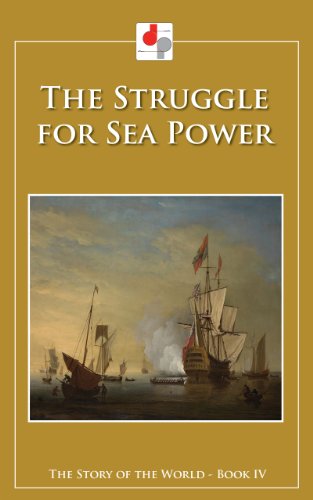-
The Legend of Cuchulain
Eleanor Hall
language (Didactic Press, Nov. 26, 2013)Quite possibly one of the best, most heroic and most tragic legends ever, that of Cuchulain! The Hound of Ulster! Eleanor Hall's fantastic retelling of one of Ireland's most enduring, most endearing legends, complete with illustrations to enhance the reading experience. The entire cast is here: Brave Cuchulain, fierce and proud, Maeve, Deirdre, Fergus mac Roy, King Conor and all the rest. Perfect for young readers and the young at heart!Contents include:HOW CONOR BECAME KING OF ULSTERQUEEN MEAVE AND THE WOMAN-SEERTHE BOY-CORPS OF KING CONORHOW CUCHULAIN GOT HIS NAMEHOW CUCHULAIN TOOK ARMSOF CUCHULAIN'S FIRST FEATS OF CHAMPIONSHIPCUCHULAIN'S ADVENTURES IN SHADOW-LANDHOW CUCHULAIN WOOED HIS WIFEMEAVE DEMANDS THE BROWN BULL OF COOLEY AND IS REFUSEDTHE PLUCKING OUT OF THE FOUR-PRONGED POLETHE DEER OF ILL-LUCKETARCOMAL'S WELL-DESERVED FATETHE FIGHT WITH SPITS OF HOLLY-WOODTHE COMBAT WITH FERDIATHE FALL OF FERDIAULSTER, AWAKE!THE END OF THE BOY-CORPSTHE "RISING-OUT" OF ULSTERTHE HUMBLING OF QUEEN MEAVETHE FAIRY SWAN-MAIDENSHOW CUCHULAIN WENT TO FAIRY-LANDDEIRDRE OF CONTENTIONSTHE UP-BRINGING OF DEIRDRETHE SLEEP-WANDERERTHE WILES OF KING CONORTHE SORROWFUL DEATH OF USNA'S SONSTHE FIGHT OF CUCHULAIN WITH HIS SON CONLATHE HOUND AT BAYFAME OUTLIVES LIFETHE RED ROUT
-
Fifty Famous People
James Baldwin
language (Didactic Press, Sept. 27, 2013)One of the best things to be said of the stories in this volume is that, although they are not biographical, they are about real persons who actually lived and performed their parts in the great drama of the world's history. Some of these persons were more famous than others, yet all have left enduring "footprints on the sands of time" and their names will not cease to be remembered. In each of the stories there is a basis of truth and an ethical lesson which cannot fail to have a wholesome influence; and each possesses elements of interest which, it is believed, will go far towards proving the fallibility of the doctrine that children find delight only in tales of the imaginative and unreal. The fact that there are a few more than fifty famous people mentioned in the volume may be credited to the author's wish to give good measure.
-
The Odyssey for Children
Alfred Church
eBook (Didactic Press, May 24, 2013)A beautiful retelling of the story of Odysseus and his travels after the fall of Troy. Formatted for Kindle devices and for the Kindle for iOS apps.
-
The Story of the Greeks
Helene Guerber, J. Daniel Cureton
eBook (Didactic Press, March 8, 2013)The classic introduction to the ancient Greeks by Helene Guerber. Fully edited and updated with illustrations, this edition of the Story of the Greeks has been formatted specifically for the Kindle(s) and Kindle apps on iPhone/iPad.
-
From Makin to Bougainville: Marine Raiders in the Pacific War
Jon T. Hoffman
eBook (Didactic Press, July 9, 2015)In February 1942, Lieutenant General Thomas Holcomb, the Commandant of the Marine Corps, ordered the creation of a new unit designated the 1st Marine Raider Battalion. This elite force, and its three sister battalions, went on to gain considerable fame for fighting prowess in World War II. There is more to the story of these units, however, than a simple tale of combat heroics. The inception, growth, and sudden end of the raiders reveals a great deal about the development and conduct of amphibious operations during the war, and about the challenges the Corps faced in expanding from 19,000 men to nearly a half million. The raiders also attracted more than their share of strong leaders. The resulting combination of courage, doctrine, organization, and personalities makes this one of the most interesting chapters in Marine Corps history...
-
Famous Men of Rome
John Haaren
eBook (Didactic Press, June 10, 2013)Biographical sketches introduce the reader to 28 of the most important figures in the history of ancient Rome, from the founding of the city through the rise of the republic to the fall of the empire. Accompanying illustrations create a rich narrative experience that showcase the majesty that was Rome.
-
The Life of Charlemagne
- Einhard
eBook (Didactic Press, April 9, 2014)SINCE I have taken upon myself to narrate the public and private life, and no small part of the deeds, of my lord and foster-father, the most lent and most justly renowned King Charles, I have condensed the matter into as brief a form as possible. I have been careful not to omit any facts that could come to my knowledge, but at the same time not to offend by a prolix style those minds that despise everything modern, if one can possibly avoid offending by a new work men who seem to despise also the masterpieces of antiquity, the works of most learned and luminous writers. Very many of them, l have no doubt, are men devoted to a life of literary leisure, who feel that the affairs of the present generation ought not to be passed by, and who do not consider everything done today as unworthy of mention and deserving to be given over to silence and oblivion , but are nevertheless seduced by lust of immortality to celebrate the glorious deeds of other times by some sort of composition rather than to deprive posterity of the mention of their own names by not writing at all.Be this as it may, I see no reason why I should refrain from entering upon a task of this kind, since no man can write with more accuracy than I of events that took place about me, and of facts concerning which I had personal knowledge, ocular demonstration as the saying goes, and I have no means of ascertaining whether or not any one else has the subject in hand.In any event, I would rather commit my story to writing, and hand it down to posterity in partnership with others, so to speak, than to suffer the most glorious life of this most excellent king, the greatest of all the princes of his day, and his illustrious deeds, hard for men of later times to imitate, to be wrapped in the darkness of oblivion.But there are still other reasons, neither unwarrantable nor insufficient, in my opinion, that urge me to write on this subject, namely, the care that King Charles bestowed upon me in my childhood, and my constant friendship with himself and his children after I took up my abode at court. In this way he strongly endeared me to himself, and made me greatly his debtor as well in death as in life, so that were I unmindful of the benefits conferred upon me, to keep silence concerning the most glorious and illustrious deeds of a man who claims so much at my hands, and suffer his life to lack due eulogy and written memorial, as if he had never lived, I should deservedly appear ungrateful, and be so considered, albeit my powers are feeble, scanty, next to nothing indeed, and not at all adapted to write and set forth a life that would tax the eloquence of a Tully [note: Tully is Marcus Tullius Cicero].I submit the book. It contains the history of a very great and distinguished man; but there is nothing in it to wonder at besides his deeds, except the fact that I, who am a barbarian, and very little versed in the Roman language, seem to suppose myself capable of writing gracefully and respectably in Latin, and to carry my presumption so far as to disdain the sentiment that Cicero is said in the first book of the Tusculan Disputations to have expressed when speaking of the Latin authors. His words are: "It is an outrageous abuse both of time and literature for a man to commit his thoughts to writing without having the ability either to arrange them or elucidate them, or attract readers by some charm of style." This dictum of the famous orator might have deterred me from writing if I had not made up my mind that it was better to risk the opinions of the world, and put my little talents for composition to the test, than to slight the memory of so great a man for the sake of sparing myself.
-
The Struggle for Sea Power
M.B. Synge
eBook (Didactic Press, Oct. 12, 2013)Book IV of the epic Story of the World series, this work focuses on the age of colonization, revealing the history of the European colonies as well as the American and French Revolutions and the rise of Napoleon.Richly illustrated throughout to enhance the reading experience. Formatted for Kindle devices and the Kindle for iOS apps.
-
The Story of Richard the Lionheart
Jacob Abbott
language (Didactic Press, Sept. 2, 2013)A beautiful introduction to the life and times of King Richard I, or Richard the Lionheart, defender of the English realm and crusader in the holy land. His story is one of adventure and intrigue, thrilling to the unfortunate end. Richly illustrated throughout for an enhanced reading experience.Contents include:King Richard's MotherRichard's Early LifeFair RosamondAccesssion of Richard to the ThroneThe CoronationPreparations for the CrusadeThe EmbarkationKing Richard at MessinaBerengariaThe Campaign in CyprusVoyage to AcreThe Arrival at AcreDifficultiesThe Fall of AcreProgress of the CrusadeReversesThe Old Man of the MountainsThe Battle of JaffaThe TruceThe Departure from PalestineRichard Made CaptiveThe Return to England
-
The Story of the French Revolution
Alice Birkhead
eBook (Didactic Press, Aug. 3, 2013)A beautiful retelling of the pivotal events of the French Revolution, full illustrated and perfect as an introduction to one of the more important events in European history that shaped Western Civilization. Fully illustrated to enhance the reading experience. Contents include:The Court of the Sun-KingJean-Jacques Rousseau, DreamerThe Lighted CandleBefore the DelugeThe Cardinal and the NecklaceThe First ProcessionThe Marquis of Mirabeau, Maker of a RevolutionThe Fall of the BastilleThe LanternTo VersaillesFrom VersaillesRed Heels and Red BonnetsThe Night of SpursMarie, Wife of RolandThe March of the MarseillaisThe HostagesThe Month of SeptemberThe Iron ChestThe Fall of the GirondeThe Trial of Capet's WidowThe Reign of TerrorThe IncorruptibleThermidorThe Little ApprenticeAfter the DelugeThe EmigrantsFor God and the King!The First Consul
-
The Awakening of Europe
M.B. Synge
eBook (Didactic Press, Sept. 22, 2013)This excellent introduction focuses on the period from the Reformation in Europe to the founding of the American colonies to the rise of Frederick the Great and Maria Theresa of Austria. Richly illustrated throughout to enhance the reading experience.Contents include:Story of the NetherlandsBrave Little HollandA Wealth of HerringsA Dutch ReformerThe Story of Martin LutherThe Diet of WormsAn Historic SceneHow the Trouble BeganThe Storm BurstsBeggars of the SeaMassacre of BartholomewThe Siege of LeydenWilliam the SilentEnglandElizabeth's SailorsDrake's Round World VoyageThe Great ArmadaAmong the IcebergsSir Humphrey GilbertVirginiaStory of the RevengeSir Walter RaleighThe Fairy QueenThe Great DramatistDays of Good Queen BessThe East India CompanyThe Story of Henry HudsonCaptain John SmithThe Founding of QuebecThe Pilgrim FathersThirty Years of WarThe Dutch at SeaThe Great South LandVan Riebeek's ColonyOliver CromwellTwo Famous AdmiralsDe RuyterFounder of PennsylvaniaThe Pilgrim's ProgressThe House of OrangeWilliam's InvitationThe Struggle in IrelandThe Siege of ViennaThe Greatness of FranceThe Story of the HuguenotsGreatest General of His AgeThe Battle of BlenheimPeter the GreatCharles XII of SwedenFrederick the Great BoyhoodAnson's Round World VoyageMaria TheresaThe Story of Scotland
-
The Story of David Livingstone
Vautier Golding
eBook (Didactic Press, Sept. 27, 2013)A beautiful introduction to the story of Dr. David Livingstone, a great opponent of the African slave trade and noted explorer. One of the foremost missionaries intensely focused on achieving substantial and lasting change in freeing human beings from the cruelty of other human beings.